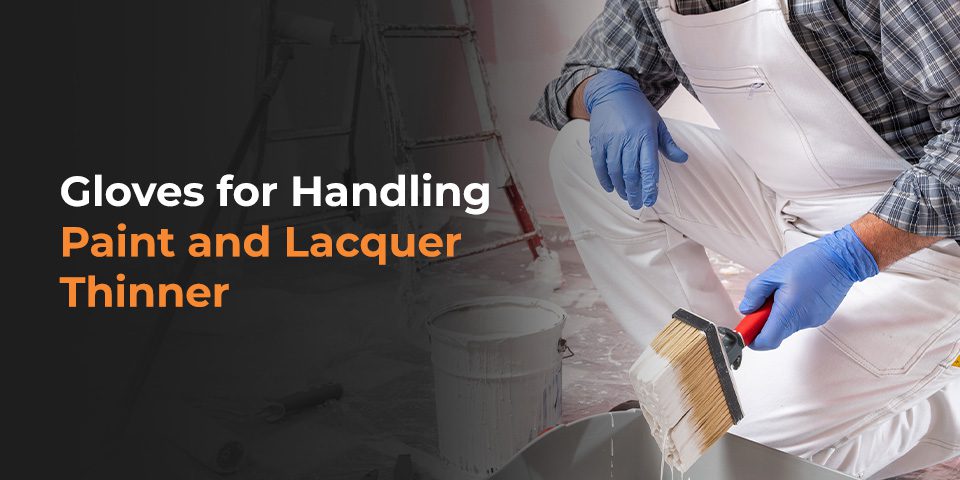
Gloves for Handling Paint and Lacquer Thinner
Paint and lacquer thinners are common substances that are often used in industries like construction, automotive, retail and more. When handling these harsh solvents, you need the proper protection.
Protecting Yourself When Working With Toxic Materials
Substances like paint and lacquer thinners are harsh solvents. As hazardous materials, they can present serious health risks if not handled properly.
Skin exposure to these solvents poses numerous risks, such as dermatitis, irritation and numbness around the contact area. Splashes of paint thinner or concentrated fumes can cause skin discomfort and pain. Repeated exposure can also lead to more severe side effects and injuries. For example, the chemicals in paint and lacquer thinner can damage your lungs, nervous system and liver, increase your risk of cancer, and more.
When you’re working with toxic materials, disposable gloves and other personal protective equipment (PPE) can help you avoid direct skin contact and protect yourself from these risks.
Which Gloves Should You Use When Working With Paint and Lacquer Thinner?
Not all gloves are equal when you need protection against harsh solvents. For example, latex gloves quickly degrade when exposed to the chemicals in paint thinner.
Nitrile gloves are the best choice for handling these toxic materials because they withstand the chemicals in paints and lacquer thinners. These painting gloves are made of a petroleum-based synthetic material that offers sufficient resistance to these harsh chemicals.
Your workers should still periodically change their lacquer thinner gloves to stay safe from exposure risks. Also, use on-site testing to determine permeation and degradation times and establish safe routines.
Don’t Forget to Mask Up
Toxic materials like paint and lacquer thinner are hazardous to more than your skin, especially with long-term exposure. Fumes and residue from spray applicators can damage your respiratory and nervous systems. Using the right mask offers protection from airborne chemicals.
N95 masks allow you to avoid directly inhaling chemical solvents. These face masks prevent dangerous chemicals from entering your nose and mouth. However, more hazardous materials or applications may require additional protection, like a respiratory mask.
Proper ventilation is a must on any site involving toxic materials and fumes that workers might inhale.
Get the Right Gloves for Any Job With SUNLINE Supply
At SUNLINE Supply, we offer the highest-rated PPE — including solvent-resistant gloves and face masks that allow you to handle chemical substances safely. Contact us today to learn more!


